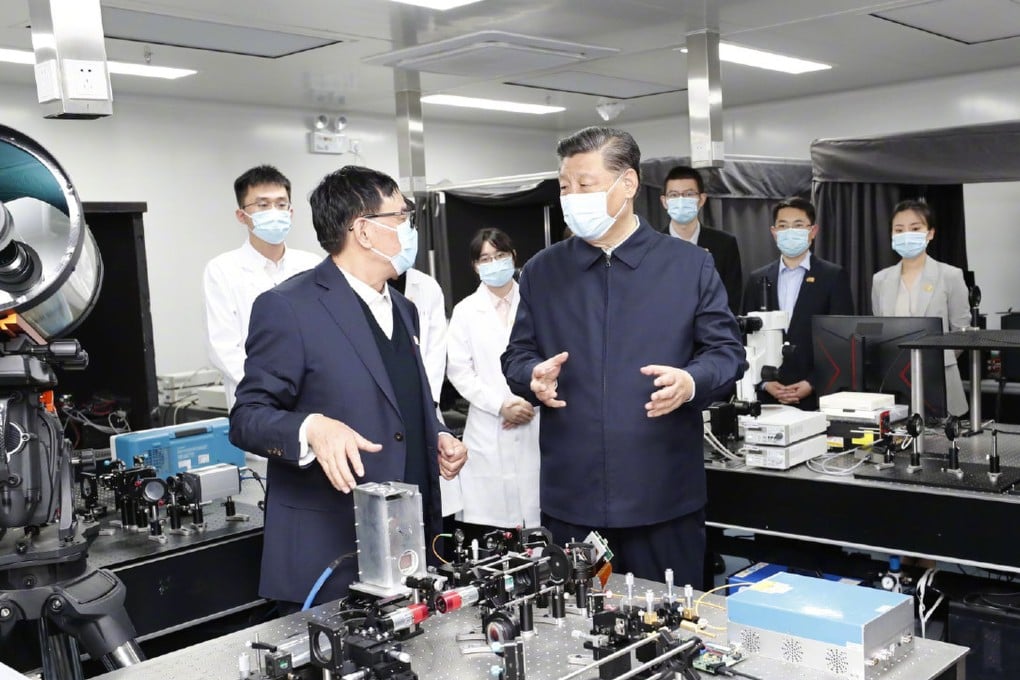Chinese universities should produce inquisitive thinkers who are totally loyal to the Communist Party, Xi Jinping says
- The Chinese president says the education system must train the ‘builders and successors’ of socialism during a visit to Tsinghua University
- Xi says Communist Party needs to encourage scientific talent and innovation in its centenary year

China’s universities should aim to train a new generation loyal to the socialist cause and with an inquisitive and innovative mindset, President Xi Jinping said on Monday.
“This year will mark the centenary of the Communist Party … the party and the state’s need for higher education, for knowledge and science and great talent, is greater than at any time before,” he said during a trip to Tsinghua University in Beijing, according to state news agency Xinhua.
He added that the aim of China’s education system is to train the “builders and successors” of socialism.
The anniversary is Beijing’s most important political event this year and Xi has promised a “grand celebration” to mark the occasion. Officials across the country have been told to ensure social stability for the event.
